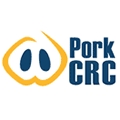 Acknowledging its commitment to maximising positive animal welfare outcomes in research and development projects it funds, the Board of the CRC for High Integrity Australian Pork has adopted welfare indicators to be assessed in all relevant projects.
Acknowledging its commitment to maximising positive animal welfare outcomes in research and development projects it funds, the Board of the CRC for High Integrity Australian Pork has adopted welfare indicators to be assessed in all relevant projects.
 According to Board Chairman, Dr John Keniry, the four indicators followed extensive discussions with animal behaviourists and support from Pork CRC independent director Dr Hugh Wirth, a former RSPCA National President and current Victorian President.
According to Board Chairman, Dr John Keniry, the four indicators followed extensive discussions with animal behaviourists and support from Pork CRC independent director Dr Hugh Wirth, a former RSPCA National President and current Victorian President.

The welfare indicators are:
- Lesion scores - reflect aggressive interaction between animals and can be readily and consistently assessed in projects and in practice. It was further recommended that carcass lesion scores should be measured where applicable.
- Salivary cortisol levels - cortisol is an acknowledged indicator of animal stress. Salivary cortisol recommended because it can be assessed less invasively than plasma cortisol.
- Animal performance - changes in performance and health generally reflect well being and physiological state and can be assessed experimentally and practically.
- Aggressive interactions and events - generally a good indicator of animal well being, reflecting the degree of harmony within a group and how an animal might adapt to different situations over time. Recommended that animal behaviour and, in particular, aggressive interactions, be recorded by video, because it is the least invasive of the techniques for assessing animal behaviour.
The indicators, to be assessed in all Pork CRC projects with animal welfare and well being implications, will largely apply to projects within Program 1 (‘Confinement free sow and piglet management’) and Program 2 (‘Herd health management’).
Dr Wirth and fellow Pork CRC director, Andrew Spencer, CEO of Australian Pork Limited, commended the board initiative, describing it as innovative and effectively underlining the CRC’s commitment to acting with high integrity in everything it does.
Dr Keniry said the Pork CRC was all about supporting science that could make a difference and a positive contribution to Australia’s pork industry, from farm to fork.
“While stakeholders in animal welfare science, including researchers, producers and welfare groups, have for some time been acknowledging the need for welfare indicators, they had not been consistently adopted, due mainly to lack of agreement on what would permit assessment of the animal itself, rather than the animal’s environment,” he said.
Pork CRC CEO, Dr Roger Campbell, a key driver of the welfare indicator initiative, applauded the Board decision, describing it as an excellent starting point for the Pork CRC, but he further hoped to see researchers come up with additional and more novel means of assessing animal welfare and well being.
August 27, 2012 - Pork CRC/ Australia


